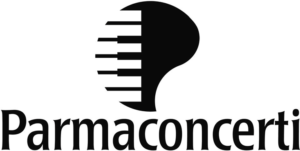Blood thinners: Can I still get blood clots?
However, moderate consumption doesn’t significantly affect the metabolism of warfarin. Moderate alcohol use is generally safe while taking most blood thinners. For healthy adults, doctors recommend limiting blood thinners and alcohol alcohol intake to a maximum of two drinks a day for males and one drink a day for females. It’s possible that one beer a day might improve lipid profile and lower oxidation of LDL in some cases.
Consuming more than two servings of alcohol every day can increase the risk of developing blood clots. Although alcohol does not interact with the mechanism of Eliquis, some evidence suggests that moderate alcohol drinking can act as a blood thinner. According to the American Blood Clot Association, one study showed that the alcohol content in 1 or 2 drinks could potentially decrease blood clotting. Eliquis can cause serious, life-threatening, or even fatal bleeding.
Alcohol Interactions with Blood Thinners
Therefore, people should always check with a doctor or pharmacist whether it is safe to drink alcohol with a particular blood thinner. If you take medication, be extra cautious while drinking alcohol. Insulin and insulin-stimulating medications such as the sulfonylureas (diabetes medications ending in ‘-ide’) may need dosage changes when consuming alcohol. Consult your diabetes healthcare provider for how to adjust your medications including insulin on days you consume alcohol.
- Professional medical treatment will help to reduce their risk of developing severe health complications.
- However, like any drug, blood thinners come with side effects, especially if mixed with alcohol.
- Those who receive an epidural during delivery should also avoid taking eliquis because it results blood clots on the spine and even paralyzation.
- Binge and heavy drinking may cause a stroke or sudden cardiac death as well.
- A doctor may prescribe these medications to reduce a person’s risk of heart attack and stroke.
- Depending on the blood thinner, the effects can last for hours or even days.
If you abuse alcohol alongside taking this medication you can raise your risk of stroke, heart attack, or life-threatening clots. Your alcohol use can be just as dangerous as the sticky blood clogging up your veins. Secondly, drinking alcohol can interfere with how medicine works, and blood thinners are no exception. You should always check with your GP about whether it is safe to drink alcohol before taking blood thinners. It is advised to do so with caution, and this is for two reasons.
The Link Between Red Wine and Healthy Hearts
Coors Light can be found most anywhere and only has 5 grams in a 12oz bottle (keep in mind that if get a pint on draft, you’ll get more carbs since that’s 16oz instead of 12).
Increasing intake of these vitamins can help thicken the blood by increasing red blood cell production. Other prescription medications that may be used to increase the number of platelets in the blood and thicken the blood include anagrelide (Agrylin), interferon, and hydroxyurea (Hydrea). Another effective technique to treat thick blood is increased hydration. Drinking at least 8 glasses of water a day can reduce blood viscosity, as well as contribute to better overall health and wellbeing.
Do phentermine and alcohol mix?
Some other lifestyle changes can help to thicken the blood, such as avoiding smoking and alcohol, drinking plenty of fluids, and getting plenty of rest. Regular exercise can also help, as it increases circulation and can help thicken the blood. Ultimately, treating thick blood is best performed by speaking with a licensed healthcare professional.
When you drink on an empty stomach or in excess, the carbs in the beer can cause blood sugar to spike and then fall quickly, potentially causing hypoglycemia (dangerously low blood sugar). This effect is made worse by the fact that when you drink alcohol, your body goes to work trying to get rid of it, causing an interruption in blood sugar regulation. By eating https://ecosoberhouse.com/ a balanced meal that has protein, fiber, and healthy fats, the alcohol in your beer is absorbed more slowly, keeping blood sugar more stable. Mixing Eliquis and alcohol is not advised because they both increase the risk of bleeding when combined. In addition, alcohol prolongs the action of Eliquis by slowing how quickly it is eliminated by the body.
How Does Eliquis and Alcohol Affect Blood?
One of the functions of your liver is to break down alcohol and some medications. If your liver is busy working hard removing the alcohol instead of your blood thinner, the level of the drug in your blood will go up and raise your bleeding risk. Although alcohol thins the blood, long-term use can have a different effect. When a person drinks excessively for long periods, their risk for a stroke increases. Long-term alcohol use also can lead to an increased risk of developing arrhythmias, which are irregular heartbeats, as well as cardiomyopathy, a stretching or drooping of the heart.
If you or a loved one is struggling to stop using alcohol, Orlando Recovery Center is here to help. We provide medical detox and inpatient and outpatient rehab services that can help you address your addiction and begin the path toward lifelong recovery. Contact us today to learn more about alcohol addiction treatment programs that can work well for your situation. As well as this, some people may experience changes in their mental and emotional state due to changes in the levels of clotting factor in the body. Blood thinners can also slow down the body’s healing process, making any type of injury or infection take longer to heal, resulting in more fatigue. Dark leafy greens, such as spinach and kale, are rich in Vitamin B-12 and folic acid, and can help to increase red blood cell production.
If you accidentally miss a dose of your blood thinner, ask your doctor what you should do. If you fall or get hit hard, call your doctor or go to the hospital right away, even if there’s no blood. A bruise anywhere on your body means you’re bleeding beneath the skin. These drugs work by breaking fibrin formation causing the clot to dissolve. Calls to our general hotline may be answered by private treatment providers.


